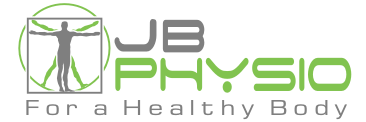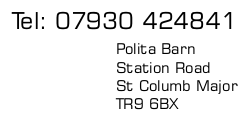FAQ's
What is physiotherapy?
We find the cause of your problem; explain clearly to you what has gone wrong and what needs to be
done to put it right. We use soft tissue treatments such as massage, joint manipulation, support strapping, corrective exercises, posture and ergonomic advice, and movement analysis.
We can advise on braces and supports, or footwear and corrective insoles. Clients come to us saying they have tried different therapy options and exercises but it hasn’t worked- often this is because they need a combination of soft tissue treatments and joint manipulation, alongside strapping to correct posture or acupuncture for long lasting pain relief.
Our Chartered Physiotherapists have extensive experience of using these treatments to work out what combinations of techniques would benefit you and bring you long lasting relief from pain.
In short, we take the guess work out of how to restore your health.
What to expect on your first visit.
Our base at Cornwall Health Hub, provides a peaceful rural setting, but still with easy access to the A39. There is plenty of easy parking and a very warm and relaxed welcome.
During your appointment, your therapist will take a detailed history of your problem, your general health and lifestyle and any other issues you need help with.
We will then assess how you move, what your muscles and joints feel like, and what happens if we correct certain things during this assessment. We may assess your reflexes and strength; and any areas of numbness or altered sensation you may have. We can also do specific assessments such as video gait analysis or posture in sitting at a computer or on a bike. This process is always as gentle and pain free as possible.
We will work out what needs correcting and suggest a course of treatment best suited to you. If you are happy to go ahead then we will get started straight away. At the end of your session, we will give you self help exercises and strategies to take away with you and throughout your session, answer any questions that you have.
What to wear? It is normally necessary to see the affected body part and to move the area, so choose loose clothing and shorts for lower limbs and a modest bra that you are comfortable in for back and upper body issues. However, don’t worry too much, as we have spare shorts for you to borrow and we are very good at using towels to preserve modesty where appropriate. It is very important that you are as relaxed and comfortable as possible during the assessment and we try our best to achieve this.
What type of treatment do I need and who to book in to see?
We are very lucky to have a range of extremely experienced Physiotherapists, Osteopaths, Sports Massage Therapists and Strength and Conditioning coaches available at JB Physio. If you have had an injury or are suffering from aches and pains that seem to have come on for no reason, all the therapists can help you. The important thing is to get an appointment as soon as possible.
If you have had surgery or have been hospitalized, then you will need to see a physiotherapist or an osteopath.
We work as a team and frequently help each other out with complex cases. You will therefore receive the best treatment and advice from us all.
Massage techniques, including deep tissue massage, myofascial release, trigger point therapy, and manual stretching to relieve pain and improve mobility, are hugely important when treating patients and yet so often overlooked.
Soft tissue makes up over a third of our body mass and is integral to supporting our bones, joints and organs. All of our therapists use a lot of massage during our sessions. A good soft tissue therapist can really feel what is going on and help diagnose and treat troublesome areas, hugely improving outcomes and recovery time.
What is a Sports Injury?
Any injury while participating in sport or dance, accidents, repetitive strain injuries, heavy jobs and
coming unstuck when taking up a new activity are all classed as ‘Sports Injuries'.
Our experienced team at JB Physio are able to assess and diagnosis the injury, deciding what further tests or imaging may be needed, and design a personalised treatment and rehabilitation program. This can be tailored for all- from those training and competing at top level sport, purely recreational sport, walking the dog or building a house.
Treating injuries correctly from the start, guiding rehabilitation through the early healing stages, progressing back to full tissue strength and correcting the reason it may have happened in the first place, is one aspect of sport injury management.
Repetitive overload injuries require early management, training program adjustments, movement analysis, corrective exercise and soft tissue work. This is the second category of challenging injuries.
So you've had an operation...what now?
So you have had the operation that may have gone well, maybe not so well. You've been discharged with
a sheet of exercises and have a follow up in few months time, maybe a physio appointment in a few
weeks time...feeling a bit lost? I would be.
It is a familiar story and one that we have had many years helping with. There is often so much
more that can be done! Advice about the do's and don’ts; sleeping, diet, pain relief, soft tissue and joint
manipulation, scar tissue management, correcting and progressing exercises, improving mobility,
preventing secondary complications, braces and support and much more.
If you have had surgery and want some advice and reassurance please call or email us. It may be that you don't need any help at all, just need some free advice and that is fine.
Can physio help trapped nerves?
Shooting pains down your legs, arms, or in your spine are often referred to as 'trapped nerves.' Nerves
cover our body and unsurprisingly get injured like any other tissue. Nerves are rarely 'trapped', often they
are more irritated or at worst compressed. Nevertheless, the sensation is very unpleasant and worrying.
'Trapped nerves' are seen most days in our clinic and are usually nerves that are irritated where they exit
the spine in a narrow tunnel formed, in part, by spinal facet joints. Manipulating the joints and soft tissue
around the joint often provides significant relief quickly.
Another common cause for a feeling of a trapped nerve can be spinal disc injury. It is important that a
correct diagnosis is made as the treatment for this condition is different. Again the nerve is irritated and sometimes squashed in the tunnel as it exits the spine, but this time by an inflamed disc. Physiotherapy can often help alleviate these symptoms as well. Symptoms such as pain, pins & needles and muscle weakness should resolve over a few weeks. If they don't, further imaging may be required and
your therapist will contact your GP to arrange this for you.
Nerves can also be 'trapped' in muscle tissue or as they pass around other joints in the body. Again, you
need to see a therapist to get an accurate diagnosis and treatment plan.
Worrying but rare signs are loss of ability or difficulty in passing water or loss of bladder control,
numbness around your anus and inner thighs or loss of use of your legs. These are indicative of cauda
equina syndrome, a medical emergency, and require urgent admission to A&E.
How can I pay?
You can pay online when you book or in person with card or cash after your appointment. We also accept Apple and Google Pay.
Can I claim through my private health insurance?
You will need to check with your insurance company if physiotherapy is covered and you can claim back
your expenses. We can provide a receipt with our business details on and your therapists Health
Professions Council details included. Arrangements for payment to be made direct from insurance
companies to JB Physio need to be authorised prior to attending.
How do I find your clinic?
JB Physio
Cornwall Health Hub
Trevornick Farm
St Columb Major
TR9 6DT
From Trekenning Roundabout, take the exit to Wadebridge A39. Continue for about 2 miles and take the 2nd turning on your right signposted St Columb Major. You will then take the first left where you see a sign for JB Physio. Continue up this lane for 200m and take the first turning on your right, sign-posted JB Physio.
If you have any trouble finding us call 07930 424841

